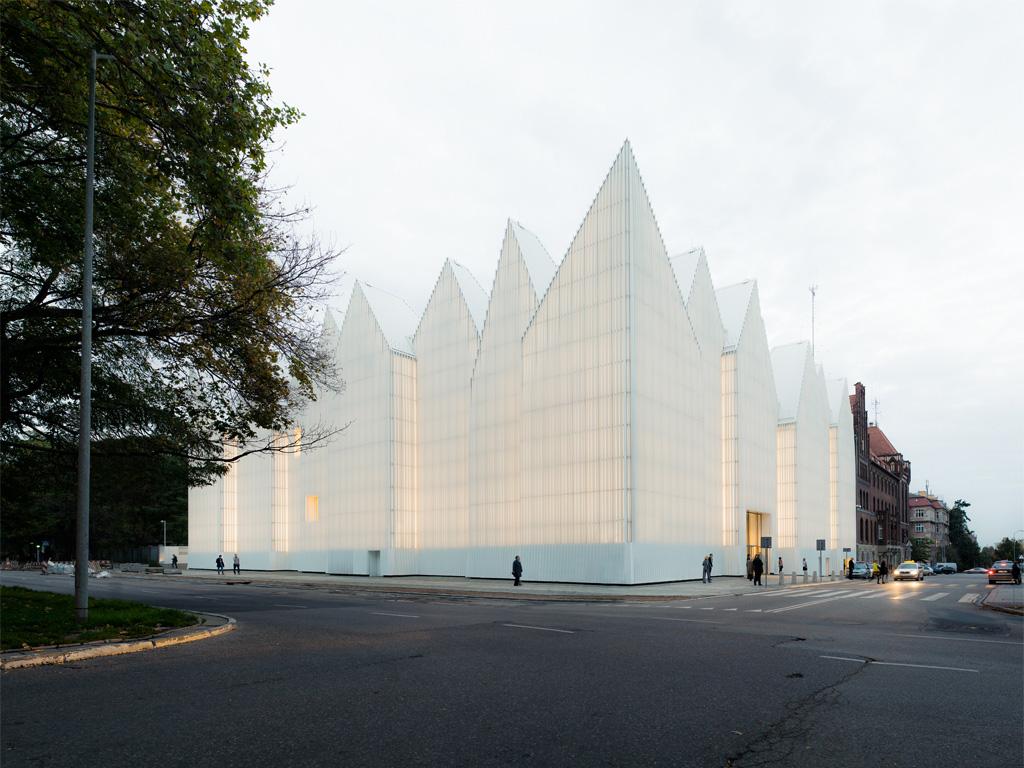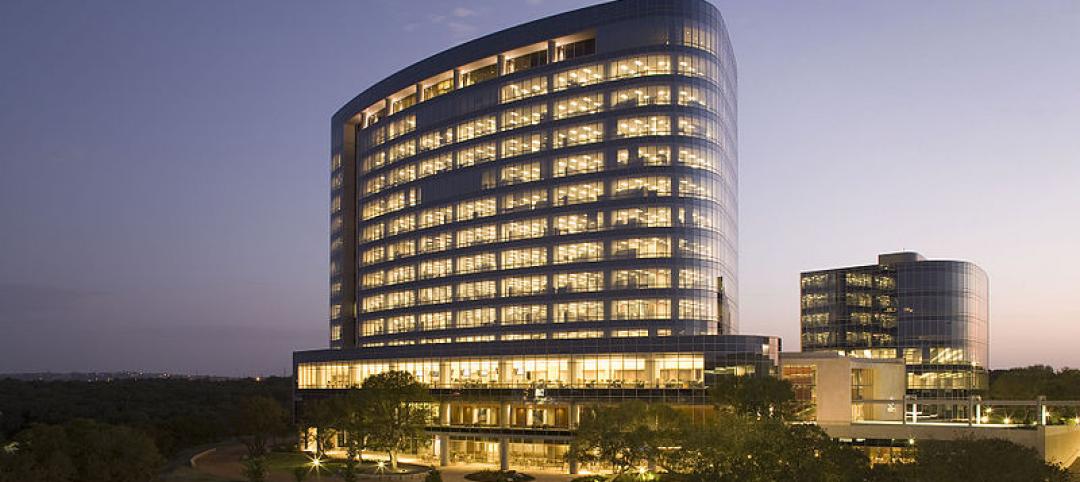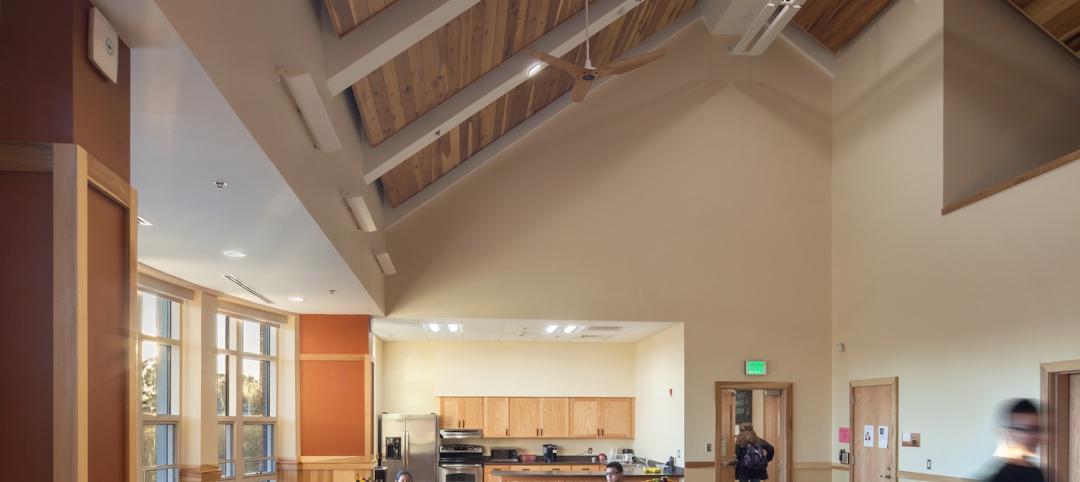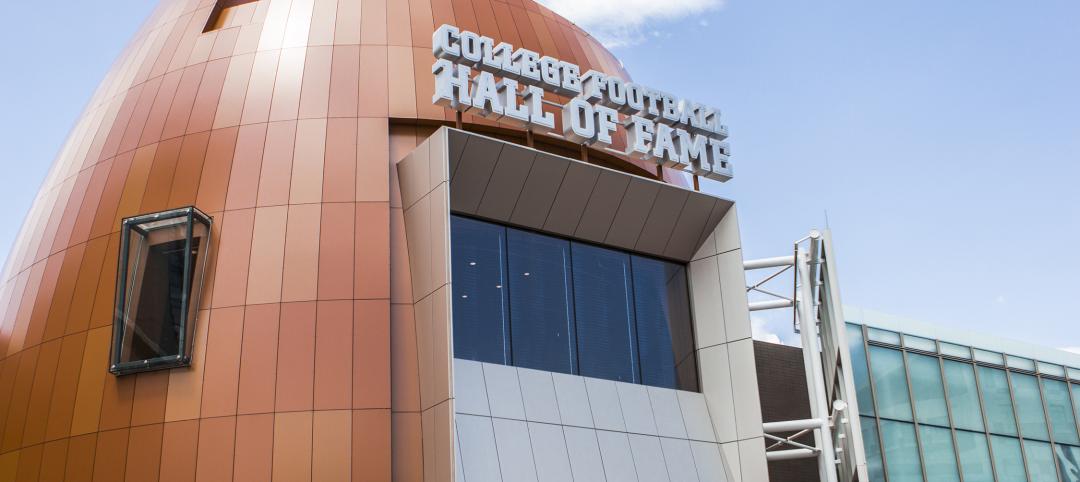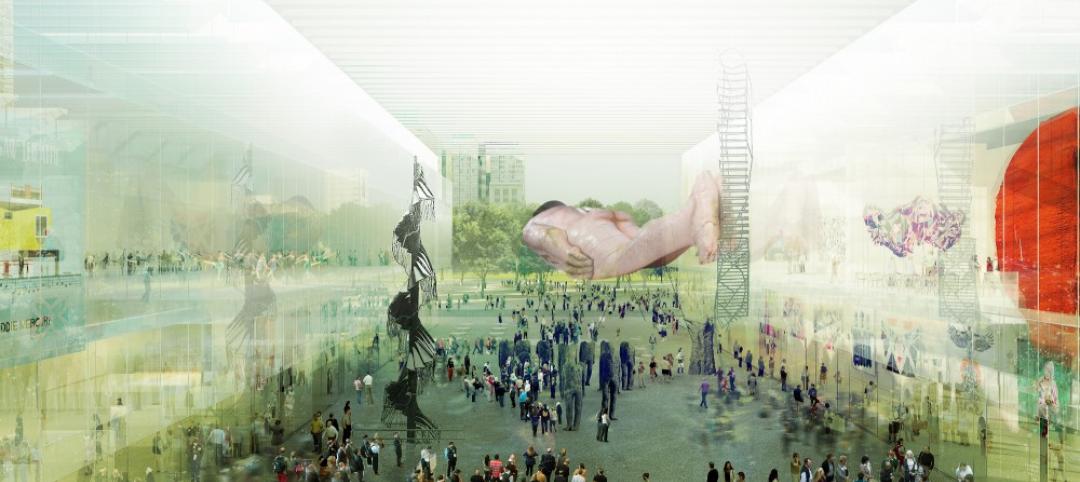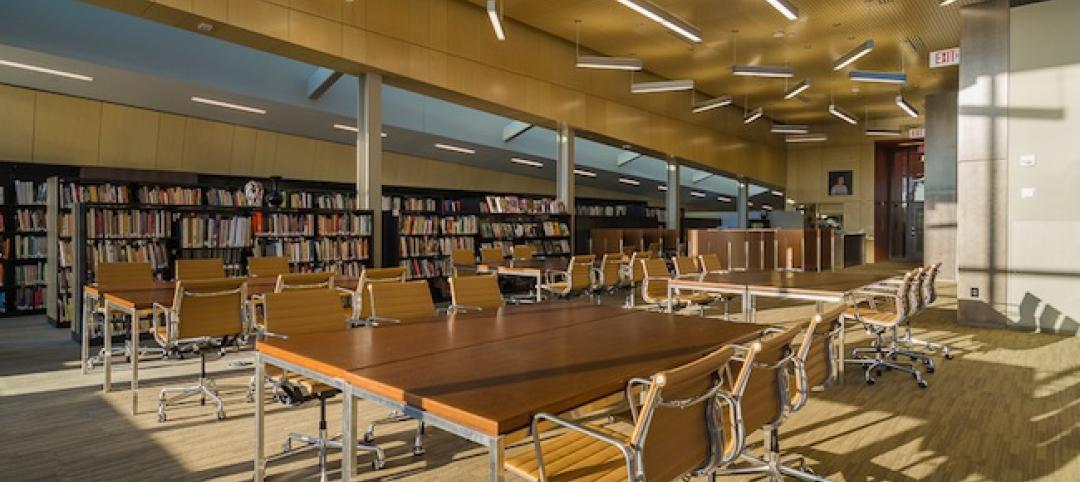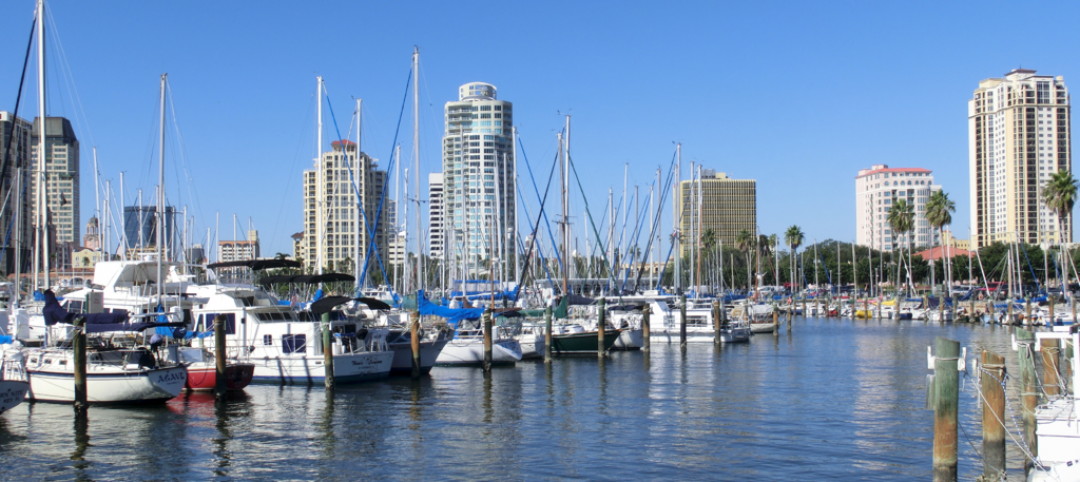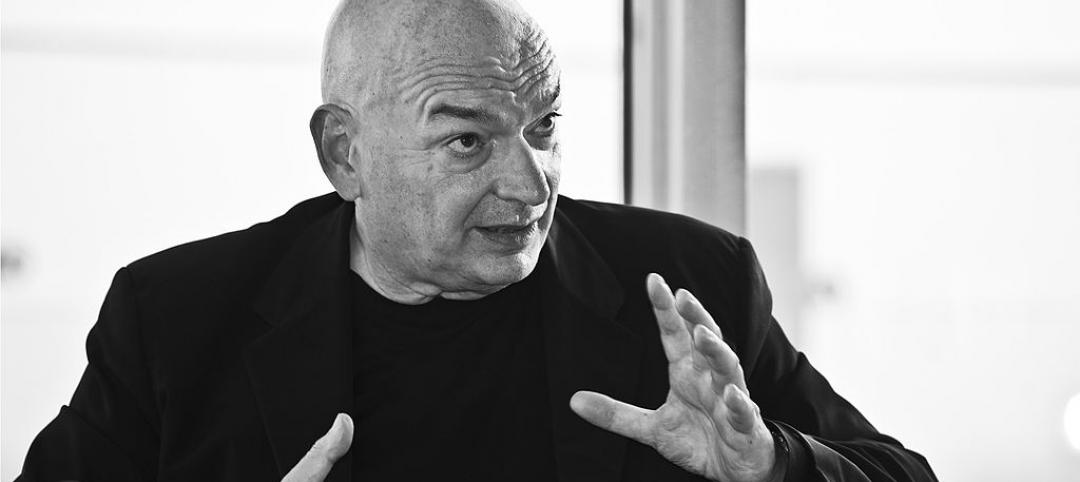Barcelona-based firm Barozzi/Veiga snatched the premier architectural award given by the European Union this year, the 2015 Mies van der Rohe Award, for its work on the Philharmonic Hall in Szczecin, Poland.
This year, 420 projects were considered, Archinect reports. The number was cut down to 40, and then five finalists were chosen to compete for the first place €60,000 award.
According to Dezeen, the hall won against O’Donnell + Tuomey’s red brick student center at the London School of Economics and BIG’s Danish Maritime Museum in Helsingør.
The selection jury included Italian architect Zino Zucchi and the RIBA’s Tony Chapman, who visited all five finalists.
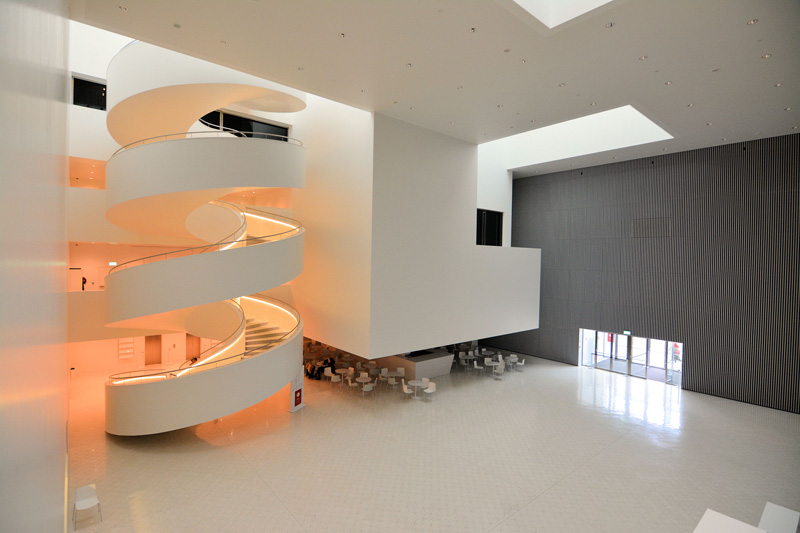
The building replaced the former WWII-era Konzerthaus of Szczecin. Studio Barozzi/Veiga’s building opened in September 2014. According to Archinect, the hall accommodates 1,000 spectators and includes a chamber hall for 200 spectators, a multifunctional exhibition and conference space, and a grand foyer that can be used to host functions.
From the jury:
The plan composition is defined by a perimetral ring. This element mostly hosts service spaces. On the one hand this allows to define a large void within which gravitate the symphony hall and the hall for chamber music, on the other hand to shape the relationship of the building with its surroundings. The serial modulation of the roof represents the only other expressive element, that permits the integration of the building within the fragmented urban profile of the city.
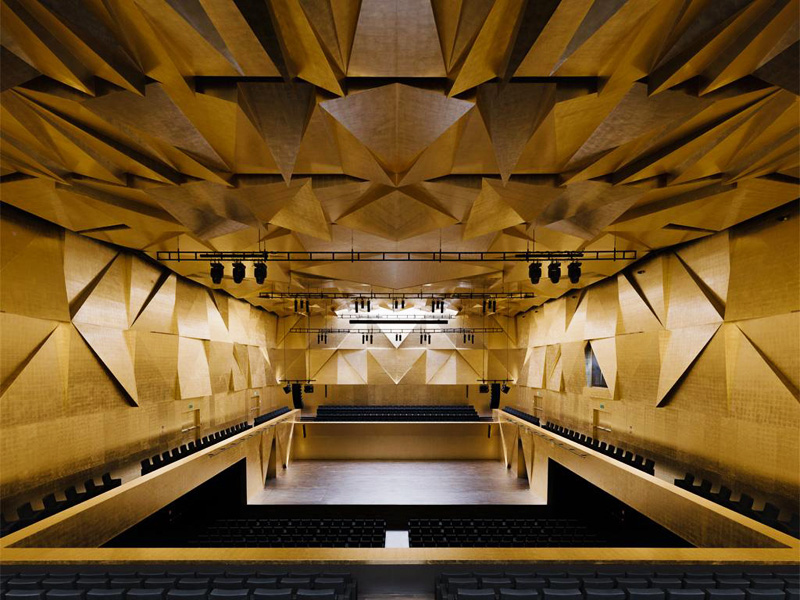
In its materiality, the building is perceived as a light element: the glass facade, illuminated from inside, depending on the use allows different perceptions. The exterior austerity and the simple composition of the interior circulation spaces contrast with the expressiveness of the main hall. In accordance with the central European tradition of the classical concert halls, decoration becomes ornament and function. The hall is composed following a Fibonacci sequence whose fragmentation increases with the distance from the scene, and gives shape to an ornamental space which reminds of the classical tradition through its gold-leaf covering.
The building predominantly adopts passive systems of energetic control. The main element is the double skin façade channeling a large part of the installation system to provide a global acoustic insulation and a natural ventilation to avoid overheating. Illuminated by a LED system, it turns the building in a glowing volume with a minimum energy consumption. The roof cladding is a multilayered pack, with differences over the concert hall than other zones, to optimize acoustics and thermal insulation.
Related Stories
| Sep 3, 2014
New designation launched to streamline LEED review process
The LEED Proven Provider designation is designed to minimize the need for additional work during the project review process.
| Sep 2, 2014
Ranked: Top green building sector AEC firms [2014 Giants 300 Report]
AECOM, Gensler, and Turner top BD+C's rankings of the nation's largest green design and construction firms.
| Aug 29, 2014
The new College Football Hall of Fame opens in Atlanta
Adjacent to the Georgia World Congress Center and Centennial Olympic Park, the three-story, 94,250-sf attraction is designed to celebrate the traditions of college football.
| Aug 29, 2014
Phifer and Partners to design 'transparent' Museum of Modern Art in Warsaw
The design includes a stage that opens onto the city's Parade Square, so anyone passing by will be able to see performances.
| Aug 25, 2014
Ranked: Top cultural facility sector AEC firms [2014 Giants 300 Report]
Arup, Gensler, and Turner head BD+C's rankings of design and construction firms with the most revenue from cultural facility projects, as reported in the 2014 Giants 300 Report.
| Aug 25, 2014
Photographer creates time-lapse video of 1 WTC using 30,000 photos
Choosing from 30,000 photos he took from the day construction began in 2006 to the day when construction was finished in 2012, Brooklyn-based photographer Benjamin Rosamund compressed 1,100 photos to create the two-minute video.
| Aug 14, 2014
Museum of Mayan Culture draws inspiration from temple design [slideshow]
The Museo Maya de América in Guatemala City will be the world’s largest museum of Mayan history and culture, at 60,000 sf.
| Aug 12, 2014
Design firms invited to submit qualifications for St. Petersburg, Fla., waterfront project
The city of St. Petersburg, Fla., invites firms to submit their ideas for a new and improved pier for Florida's fifth largest city.
| Aug 5, 2014
Shigeru Ban-designed Aspen Art Museum will open doors to public this week
After 18 month of planning and construction, the museum will open its new Shigeru Ban-designed facility to the public on August 9.
| Aug 4, 2014
Jean Nouvel commissioned to design Islam Museum next to WTC
El-Gamal's plans has been dubbed controversial by many industry professionals.


